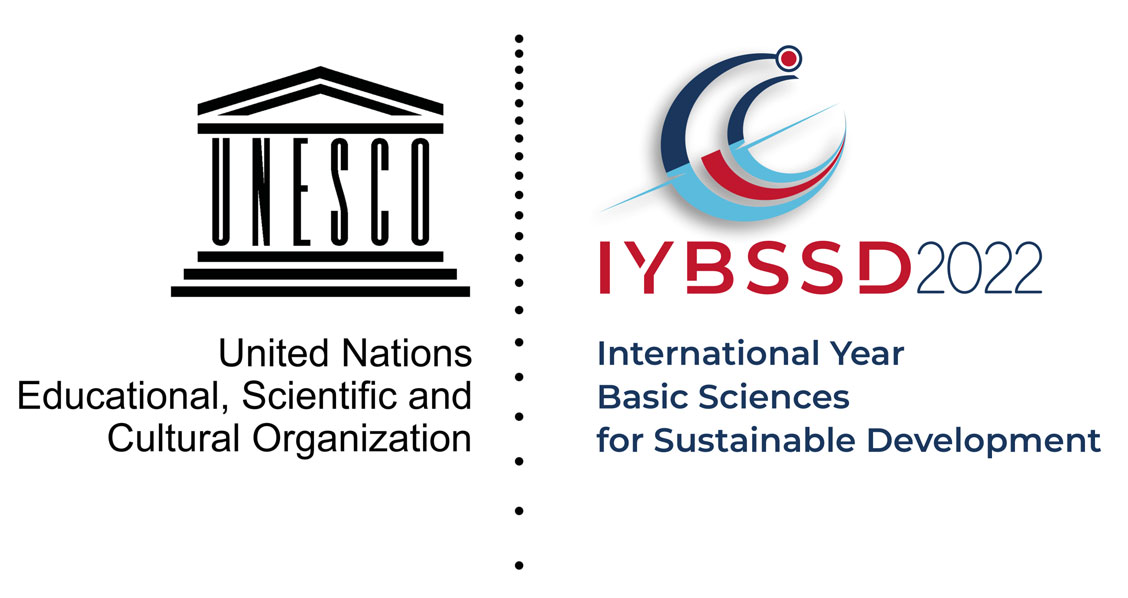"Recognizing the high value for humankind of basic sciences [...] to improve the quality of life for people all over the world", the 193 United Nations Member States, yesterday, 2 December, adopted a draft resolution (document A/76/L.12) that proclaims 2022 the international Year of Basic Sciences for Sustainable Development.
The resolution was proposed to the United Nations General Assembly by Honduras, and co-sponsored by 36 other countries. Its vote confirmed UNESCO General Conference resolution 40 C/76 adopted unanimously on 25 November 2019.
 The International Year of Basic Sciences for Sustainable Development (IYBSSD2022) will be officially inaugurated with an opening conference 30 June–1 July 2022 at UNESCO headquarters in Paris. Events and activities will be organized around the world until 30 June 2023.
The International Year of Basic Sciences for Sustainable Development (IYBSSD2022) will be officially inaugurated with an opening conference 30 June–1 July 2022 at UNESCO headquarters in Paris. Events and activities will be organized around the world until 30 June 2023.
The United Nations General Assembly, in fact, invited UNESCO "to be the lead agency and focal point for the Year and to organize activities to be realized during the Year, in collaboration with other relevant entities of the United Nations system, as well as international governmental and non-governmental scientific organizations."
Yesterday's vote was the result of the mobilization of the international scientific community, led since 2017 by the International Union of Pure and Applied Physics, the European Laboratory for Particle Physics, and 26 other international scientific unions and research organizations from different parts of the world, under the auspices of UNESCO. Over 90 national and international science academies—TWAS being one of them—learned societies, scientific networks, research and education centres are also supporting this initiative. They will organize events and activities all over the planet during this special year, to showcase and improve the links between basic sciences and the 17 Global Goals. And the resolution does acknowledge the support received by science academies and networks, including 28 Nobel laureates and Fields Medallists.
Introducing the draft resolution, the representative of Honduras said the COVID‑19 pandemic showed that society needs to better develop the scientific knowledge to tackle similar emergencies in the future. The proclamation of an interdisciplinary, international year of basic sciences for sustainable development makes it possible to identify interested partners—including the scientific community, political leaders and civil society members—to develop synergies. She added that the draft resolution also demonstrated the commitment of all delegations to promote and teach basic sciences to improve humanity.
The representative of Cuba expressed support for the broad use of science for the betterment of society, stressing that that vision should have more robust support from international bodies. COVID‑19 pandemic had posed unprecedented social and health challenges, so, multilateralism—especially the sharing of information and resources—is the only way to tackle them. The pandemic also revealed, however, how few resources have, in fact, been shared. Against that backdrop, the upcoming year is the ideal time to promote the crucial role of sciences in international development.
Also, "the year 2022 provides an opportunity to highlight the need for international scientific collaboration on the centennial celebration of the founding of the International Union of Pure and Applied Physics," continues the resolution.
The Assembly then adopted the draft resolution, titled “International Year of Basic Sciences for Sustainable Development, 2022,” without a vote.
UNESCO-TWAS has had sustainability at the core of its mission since the inception, way before the concept became known as such. What better opportunity, then, for the Academy to further show the breadth of its scope and to contribute its expertise not only in the broader context of science, but also in the specific context of sustainable development?
Raffaella De Lia

